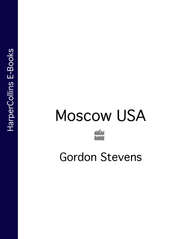По всем вопросам обращайтесь на: info@litportal.ru
(©) 2003-2024.
✖
Peace on Earth
Автор
Год написания книги
2018
Настройки чтения
Размер шрифта
Высота строк
Поля
‘Thank you.’ Nabil rose to leave. At the wall at the back, the old man saw the two men with the loose-fitting coats rise to follow.
‘I only told you what you already knew,’ he said.
Nabil thought of the article in the newspaper, the plan that had been born of it, the single factor that would decide whether or not the plan would succeed. ‘That is why I thank you.’
* * *
Abu Nabil was fifty-three years old; his father had been a merchant, his two brothers were still prosperous businessmen on the West Bank, he himself had qualified as a doctor. For the past thirty years, however, his profession had been the exercise of whatever means he considered necessary to secure the return of his people to the land called Palestine. Others referred to the craft he practised as terrorism.
He had played a role, at first political, later military, both in the main body of the PLO and, increasingly, in the factions which splintered from it, till he himself headed one of the so-called extremist groups which opposed what it saw as Yasser Arafat’s increasing and self-imposed impotence. He had been involved in most of the acts of terrorism from the late sixties through to the mid eighties, from Dawsons Field and Black September, to the Vienna OPEC hijack, to Mogadishu. More recently he had been at the centre of the power struggle within the ranks of the Palestinian movement itself, his organisation being held responsible for at least some of the assassinations which had spread from the Middle East across Europe. He had operated his forces in the Lebanon during the various stages of that country’s civil war, and had played a key role in forcing the exodus of Yasser Arafat and his mainstream PLO grouping from their headquarters in the Northern Lebanese port of Tripoli in 1983.
The available information on him, however, was less than skeletal, the merest details of his birth and education, of his marriage and of the death of his family, though this was rarely mentioned, especially by his enemies, who feared how even the barest details of the massacre of such innocents would feed the legend which had grown around him.
His name, Abu Nabil, was itself a nom de guerre. There were even those who questioned whether he, in fact, existed, whether he was the person his enemies, and his friends, thought him to be, or whether he was a committee who used his name, his reputation, to further their various causes. Others accepted that he had existed, but maintained that he had died some years previously, probably in an Israeli rocket attack on a house in which he had reputedly been staying. In the past eight years there had been four reports, all reliable, that he had died of cancer, two of them stating that he had died despite treatment in Moscow, and three more reports, equally reliable, that he had died of a heart attack.
* * *
By eight that morning Nabil had slept for a little over three hours, showered and taken a light breakfast, then had gone again through the elements of the plan that was now taking firmer shape in his mind. Precisely on the hour, the first of his appointments arrived.
Malik Saad looked the accountant that he was, small, a sharp nose, heavy-rimmed spectacles. He had headed the organisation’s finances, welcoming its income and quarrelling over its expenditure, for the past five years; during that time he had also invested its money wisely, ensuring a fruitful return both in terms of finance and obligations, spreading its resources not only through the multitude of Palestinian companies which played a major role in the engineering and construction industries of the Middle East, but also into Europe and North America, both the United States and Canada. For the four years before that he had been imprisoned for his part in a bomb attack on an Israeli patrol on the West Bank.
Nabil watched him arrive, then welcomed him to the flat on the third floor, and offered him coffee. For ten minutes they discussed areas of future investments, Saad outlining what he saw as potential returns for the future; when what they both recognised as the formalities were completed, Abu Nabil turned the conversation to the reason for the summons.
‘I need to know how our finances stand at the moment. I am considering a medium-term strategy which will require, at certain points over the next few months, the transfer of substantial amounts of money to various organisations, probably within Europe. I will need you to ensure that the monies are available when needed, and that the transfers are completed with a minimum of complications.’
Saad had only one question. ‘You are anticipating a budget request. When will you approve it?’
‘I just have.’
Twenty minutes after the accountant had left, the soldier arrived. Issam Sharaf was thirty-nine years old and had been with Nabil since the bloody days of Black September fourteen years before; his body bore the scars of a lifetime of fighting, there were the traces of shrapnel near his spine and his left arm had been rebuilt round a metal rod.
The conversation was even shorter, even more to the point, than that with the accountant; it was how both men had grown together, how they preferred to operate. It was also, Sharaf thought, as if Nabil had already decided what was to be done, how it was to be done, as if he had also decided there was little time in which to do it.
‘I was wondering,’ Nabil began, ‘how Europe was.’
Sharaf knew the man well, knew how he approached a subject, even when time was short; he settled back onto the sofa and accepted the coffee.
‘Quiet,’ he said, the inflection in his voice suggesting that Europe had been too quiet for too long. ‘People have been re-grouping, we have been training them, giving them a little finance. As you know.’ He was already wondering where Nabil had decided the conversation would end.
For the next few minutes he listed the activities of the various European groups with which they had contact, giving updates on changes in personnel and philosophies, as well as a breakdown of the strengths and weaknesses of each. In West Germany the Red Army Faction, the descendants of the Baader-Meinhof group of the seventies, and the lesser-known Revolutionary Cells, the RZs; in Italy the Red Brigades and, again, the less known Prima Linea; in France, Action Directe; in Belgium the CCC, the Cellules Communistes Combattantes; in Portugal the Popular Forces of April 25th; in Spain the Basque separatist movement, ETA, plus the anarchist group GRAPO and the Catalan separatist movement, TL.
‘Four questions,’ said Abu Nabil when Sharaf had finished. The soldier waited, knowing that the first would be the easiest, as the first always was.
‘Firstly,’ asked Nabil, ‘how would we persuade the various groups with whom we have contact to launch a coordinated campaign throughout Europe?’
‘Easy. We agree to finance them.’ He knew the other questions would increase in complexity.
‘Secondly, how easy would it be to demonstrate that the campaign was, in fact, carefully coordinated rather than a series of isolated incidents?’
The soldier sensed again that Abu Nabil had already worked it out, ‘Equally easy.’ His mind was already anticipating the next question. ‘Exchange of weapons between groups to link assassinations, use of explosives from the same source for attacks in different countries, same targets or type of targets, joint communiqués between various groups, tied in with the exchange of weapons and sharing of explosives, claiming responsibility for actions. It would be simple to leave a trail all over Europe.’ He could see why Nabil would want it, could see the type of fear a coordinated campaign would create, wondered what Nabil had conceived for the next stage of the escalation of that fear.
‘Thirdly,’ said Nabil, ‘a hunger strike.’
It was, thought Sharaf, as if Nabil was establishing a background against which a specific event could take place, but it was also as if, when that event took place, it would appear to be merely a consequence of what had gone before rather than the reason for it.
With you, the old man had told Abu Nabil less than five hours before, nothing is as it seems.
Why? Nabil had asked him.
Because you are more than an Arab, the old man had told him, you are a Palestinian.
‘West Germany would be the obvious place,’ he suggested. ‘The groups there have the right history, the right commitment.’
‘In that case,’ said Nabil, ‘I will need a set of demands.’
Connected to the hunger strike, Sharaf knew. He thought for the last time that Nabil had already planned both where it would start and how it would end. It was not yet ten in the morning. ‘Why?’ he asked.
Nabil told him. When he had finished he had only one question. ‘When can you leave?’
‘This afternoon. I’ll need a budget.’
‘I have already approved it.’
Abu Nabil was planning something else, Sharaf thought, something connected with what he himself would set in motion, something, however, which did not concern him. Like the pieces on the chess board which Nabil kept on the desk, each piece playing its part, each piece allowed to know its part, but no more.
‘About the hunger strike,’ said Nabil. ‘There is one more thing.’
Six hours after the meeting, Issam Sharaf left Damascus to begin his arrangements, four hours after that Abu Nabil himself departed. He took with him only one bodyguard whom he would in turn leave during the most delicate moments of the weeks ahead, his driver and other shadows remaining behind so that they could be seen in the city during his absence, another figure behind the smoked windows of the Mercedes confirming that Nabil was still in Damascus.
As if this was not enough, he also left behind the one personal item he was known never to travel without, the photograph of the young family which he kept on the desk by the window.
* * *
The day after Nabil and Sharaf made their separate departures from Damascus, Yakov Zubko and his family left Vienna for Israel. Their stay in the city had been kept as short as possible, for reasons of finance: the Jewish Agency did not enjoy a limitless budget. And the address at which they stayed had been kept a secret, for reasons of security: Jews such as themselves were still considered targets for the Palestinian groups which lay waiting in Europe.
The El Al flight was crowded and they remembered little of it, each of them too excited to accept any of the food or drink they were offered. At fifteen minutes past seven in the evening the Boeing landed at Ben Gurion, at twenty-five minutes past seven they stood for the first time in the land for which they had sacrificed so much. The representative of the Jewish Agency in Tel Aviv was waiting for them; Yakov Zubko shook the woman’s hand then asked to be left alone. The representative understood, remembering the day she had arrived, knowing she would never forget it.
Quietly, ignoring the sound of the engines and the bustle of the airport, Yakov Zubko and his family looked across the concrete of the runway to the purple of the hills beyond, the smell of the orange blossom drifting to them, filling the night air. B’shavia Huzu a b’Yerushalaim, he thought, this year in Jerusalem. No more lying, he also thought, no more thieving, no more risks on the black market, no more people always waiting for him and the likes of him.
‘We are home, Alexandra Zubko,’ he said at last, the first tears filling his eyes.
‘We are home, Yakov Zubko,’ she said.
* * *
Three days later Abu Nabil began his entry into Europe, having spent the intervening time further concealing his departure from Syria. In his fifty-three years he had learned that it was as necessary to protect himself from those who called themselves his friends as from those he knew to be his enemies. He spent time in Amman, a seemingly unlikely choice given his role in Black September but one which could only be viewed accurately in the light of what was to come, as well as Cairo and Rome, crossing and re-crossing his tracks, making the telephone calls to arrange the appointments he was seeking in the capitals of the West, before his flight to Paris.
Five days after he had left the flat in Damascus, he flew into Charles de Gaulle using a false name and passport issued in Kuwait, both of which, had the authorities checked, would have been found to be correct. Nabil was a careful man.









